If you’re seeing this, congrats! You made it past 40! Now keep reading this story so you can make it to 80 and beyond. We asked the country’s top doctors, nutritionists, and mental health professionals how you can optimize yourself and live happier, healthier, and longer than ever. Click through to discover how.
RELATED: 50 Things Doctors Would Tell Their Own Mothers.
Be Aware of Hormonal Factors
It’s hard not to notice the changes our bodies go through, but the underlying causes might not be so obvious. “We can experience hormonal changes as we get older, which can change the way food is metabolized and the way our bodies use and produce energy,” says Isabel Smith, MS, RD, CDN, registered dietitian and founder of Isabel Smith Nutrition. “As a result, it can be a frustrating reality for many when they notice more fat around their middle (especially for women).” And for more ways to keep your middle in check, see 50 Ways to Shrink Your Belly.
The Rx: Come to terms with the fact that your body simply does not process food the same way and commit to a mindful lifestyle in which you’re able to make healthier choices.
Balance Your Blood Sugar

It’s not an exact science, but changes in mood, energy or sleep can signify that your blood sugar might be out of whack. “It’s important that we’re eating consistently for blood-sugar balancing which is really the key [to staying fit in your forties]. The fat that tends to collect around the midsection is all about blood sugar and cortisol levels,” says Smith.
The Rx: A good way to stabilize things is to avoid the blood sugar spikes and crashes caused by empty carbs like white bread and pasta. See The 20 Unhealthiest Carb Habits for Your Waistline so you know what to avoid.
You’re Likely Over Caffeinated

Chances are it’s not the first time you’ve been told to scale back on the coffee, but it’s about time to do it! “For caffeine, I’d suggest about one glass per day. Depending on what you’re having, that’s between 35-80 mg per day, but really no more than that,” says Smith. “Also know that decaf does not mean caffeine-free.” Too much caffeine can cause insomnia, irritability and, when used as a quick fix for an energy dip rather than reaching for whole foods, you rob your body of a chance to fuel itself properly, which won’t fix the underlying fatigue.
Read more: 35 Things You Didn’t Know About Caffeine
Fuel Energy Dips With Whole Food—Not Junk

It doesn’t matter how old we are, energy dips and wacky cravings can always throw us for a loop. “People don’t clinically have blood sugar control issues, but they can feel when their blood sugar is not well balanced,” says Smith. “Clues to that are feeling really fatigued throughout the day, waking up super tired, or having energy crashes. When it’s crashing we likely need to be fed, but what happens is that people caffeinate which can make it worse.”
The Rx: Reach for protein-rich or healthy-fat items like chicken, fish, or nuts when you feel your battery dying to level out your blood sugar.
Don’t Supplement Without Speaking to a Professional

It’s easy to get pulled into the world of quick fixes and “magic pills,” but tread with caution when it comes to supplementation. “I recommend getting your vitamin D checked to see how much, or if, you need to supplement,” says Smith. “Most people can benefit from a probiotic or fish oil supplement, but it’s always wise to have a conversation with a professional about your diet and have someone with trained eyes look at your blood work.” And while you’re at the doctor, here are 20 Questions You Should Ask Your Doctor.
Schedule Sleep

When you were 20, you might have gotten away with getting only four or five hours of sleep, but those days are long gone. You’re likely being pulled in a million different directions, but it’s crucial to your health and sanity that you schedule adequate sleep each night. “We need seven to eight hours of sleep per night,” says Smith. “Also, as we get older we might need more sleep.”
Cut Out Empty Calories Once and For All

One of the biggest changes we experience in our 30s and 40s is how our body uses and processes calories. The ever-feared slowing of the metabolism is actually somewhat of a reality. “Focus on cutting out empty calories, because they add up quickly and don’t leave you feeling full. Avoid wasting your nutrient needs on empty calories items like chips, soft drinks, and latte syrups,” says Jessica Crandall, a Denver-based RD, Certified Diabetes Educator, and National Spokesperson for the Academy of Nutrition and Dietetics. And for other foods to avoid, see the 100 Unhealthiest Foods On the Planet.
Eat Breakfast Within One Hour of Rising
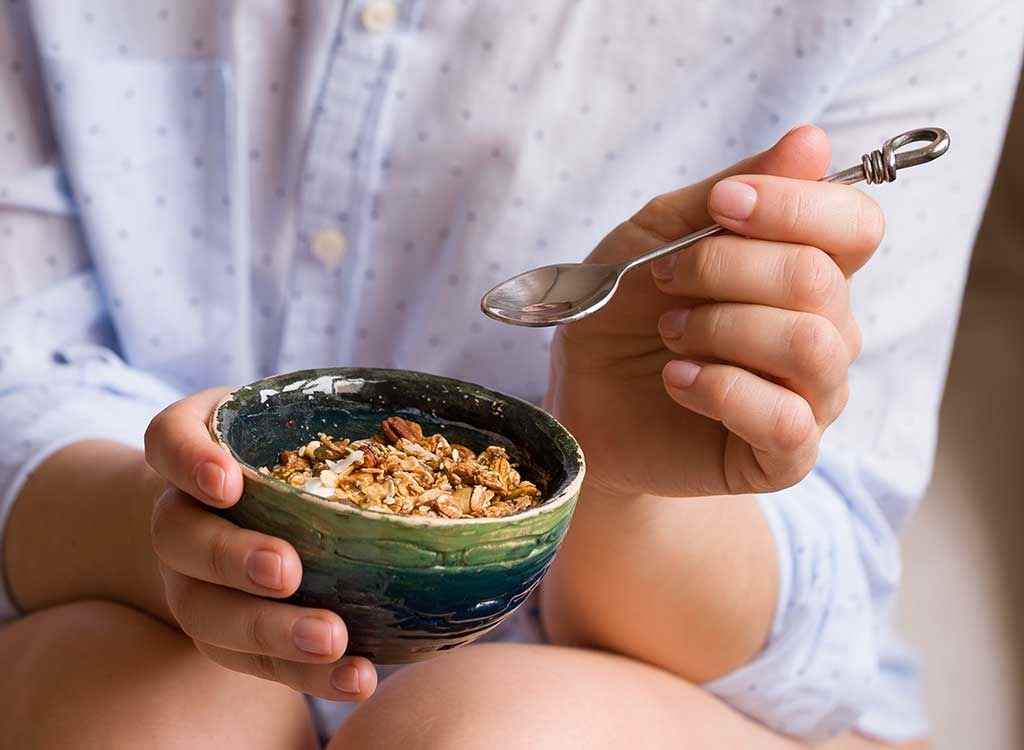
If you’ve never been a breakfast person, it’s better late than never. “Meal timings are really important for your metabolism,” says Crandall. “The best thing we can do is make sure that we’re re-fueling our bodies by eating breakfast within the first hour of waking up.” Doing that will help you enjoy some of these 21 things that happen to your body when you eat breakfast!
Eat Every 4-6 Hours

Not only is it important to kickstart your metabolism first thing in the morning with a healthy breakfast, but to keep it humming you’ve got to eat consistently throughout the day. Crandall suggests eating every four to six hours post-breakfast to keep your body fueled and using energy efficiently, which can assist with any fat-burning goals. For easy breakfast ideas, see 42 Best Breakfasts After 40!
Aim For 20-30 Grams of Protein Per Meal
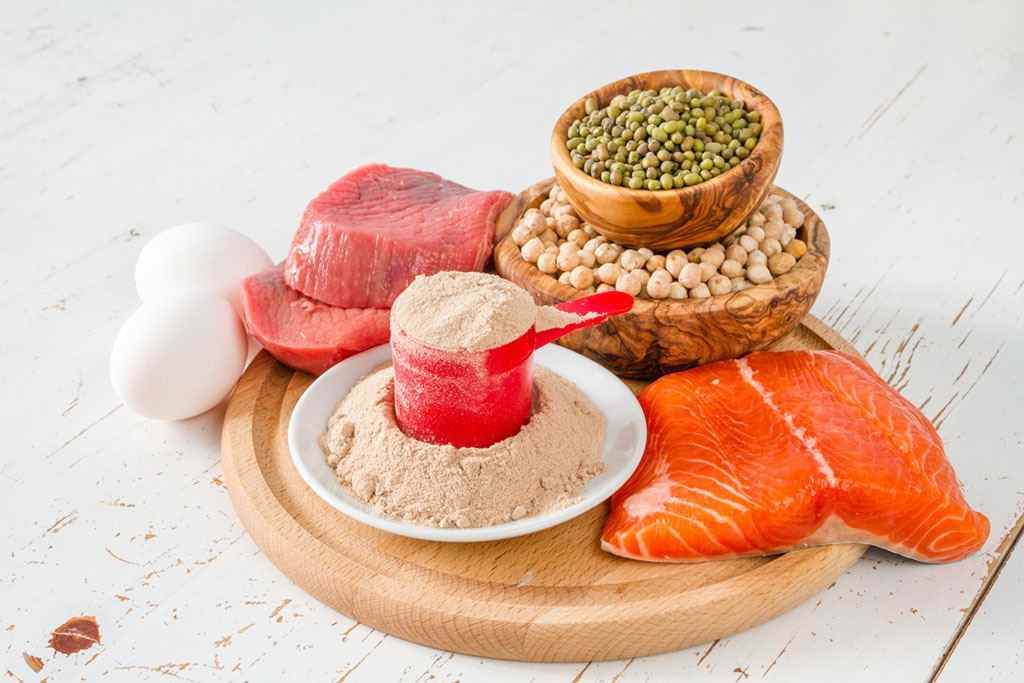
You don’t have to be a bodybuilder to seek out protein consistently. The nutrient is crucial to maintaining and building muscle mass as we age. “It’s important to make sure we have 20 to 30 grams of protein at every meal. That’s ideal to help keep that muscle mass strong,” says Crandall. The more muscle you have, the less overall fat sits on your body. “Less muscle mass means a higher body fat percentage. At rest, lean body mass is active, burning calories, which is why having more lean muscle means a faster metabolism. Fat, at rest, is inactive, so overall metabolism is slower,” says Tanya Zuckerbrot, R.D. and founder of the popular F-Factor Diet. Here’s how to eat protein for maximum weight loss!
Reach for More Antioxidants
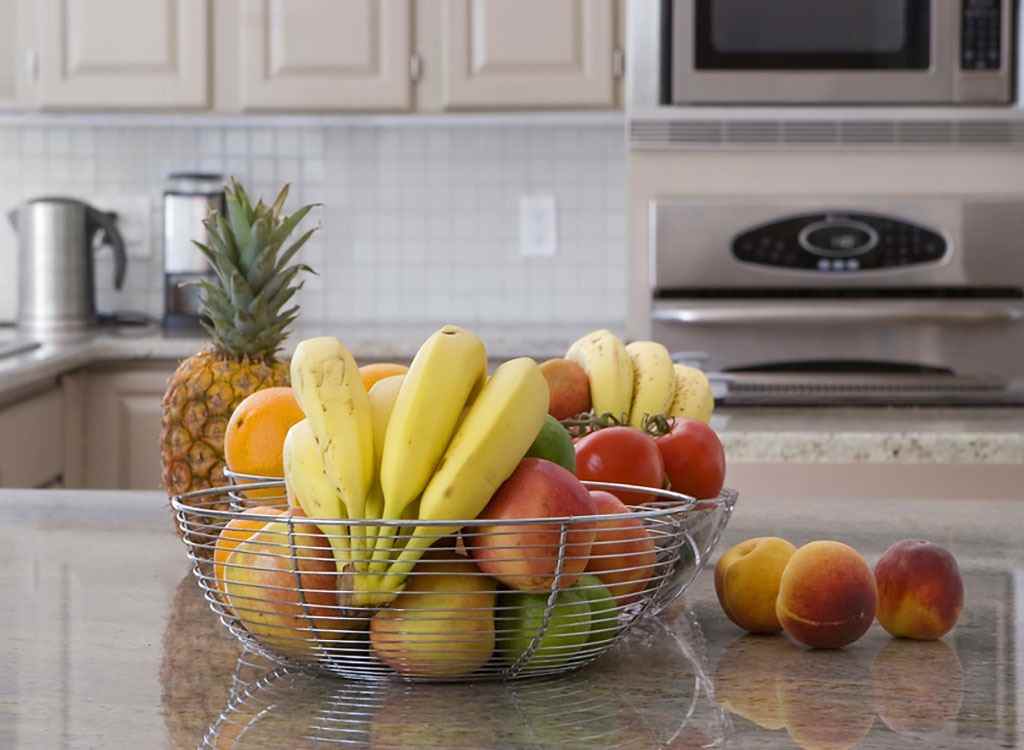
By now you probably know that antioxidants are healthy, but the nutrients are especially important as we age in order to prevent and fight against problems that may arise such as skin damage or even certain cancers. “I also think as we go into this age we’re thinking about antioxidants and cell health. Maybe our joints are aching a little bit more. So you should be incorporating a good amount of antioxidants from fruits, veggies, nuts, and beans into your diet,” says Crandall.
Get In Your Omegas Every Day
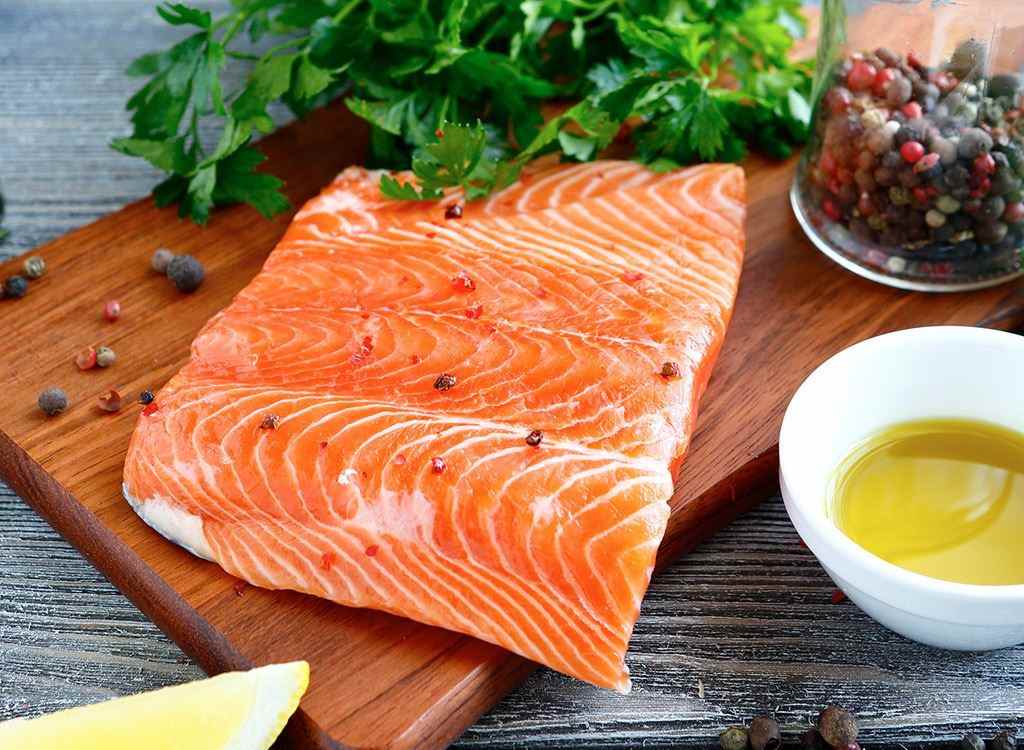
In the last decade, fats became trendy. But regardless of hype, healthy fats like omega-3 fatty acids are incredibly beneficial to your health and body functions. “By increasing omega-3 intake, you can really help decrease joint pain. In your 20s, you never felt your joints at all — you just thought you were Gumby — but now is the time to be kinder to your joints in order to stay active so that you have the ability to do the things you like to do,” says Crandall.
The Rx: Wild salmon is our favorite go-to source for omega-3s.
Modify Your Movements

It may suddenly feel like you have to erase everything you’ve learned in the last 20 years or so regarding exercise, but there’s no need to drop your favorite workouts — just modify. “Find different modifications for your activities and stay positive about it. You may not be able to go out and do the long runs you used to do or lift as heavy, but there are still great lower-impact options such as cycling or doing lighter lifting with more frequent reps,” says Crandall.
Make Your Diet More Heart Healthy

When you were younger the last thing you probably thought about was your heart health, but being mindful of your ticker is very important as we get older. The earlier you make heart health a priority, the better because prevention is the most effective measure you can take.
The Rx: “Focus on higher fiber foods and lower cholesterol foods to make sure your heart stays healthy. Also, look to healthier fats and oils and try to omit some more processed meats like bacon,” says Crandall.
Kick Up Your Calcium Intake
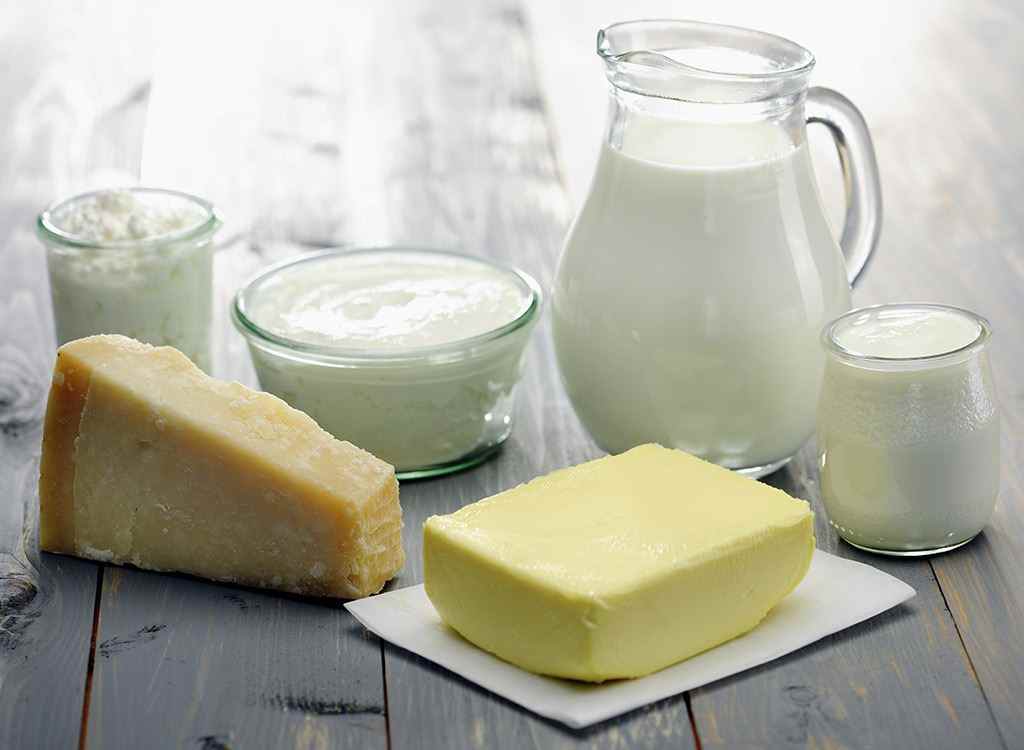
At this point in your life, you should also be thinking about bone density and what you can do to strengthen it. “After the age of 40, it is important to make sure you maintain healthy bones to avoid developing osteoporosis. It usually occurs in people over 50 and increases the risk of fractures. To maintain bone density, consume 1,000 to 1,200 mg of calcium daily along with vitamin D and moderate exercise,” says Zuckerbrot. About three servings of dairy will suffice but talk to your doctor if you need additional help fitting in your daily dose. And if you need some ideas, check out The 20 Best Calcium-Rich Foods That Aren’t Dairy.
Supplement with B12
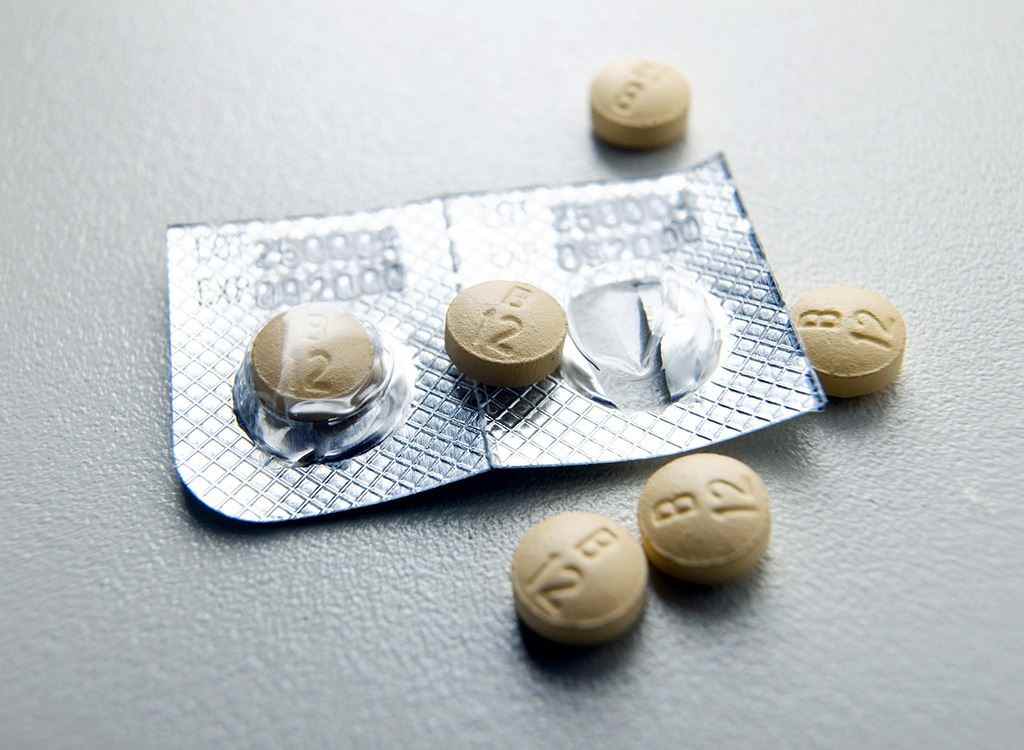
Older adults typically have a higher risk for vitamin B12 deficiency because our ability to absorb the vitamin decreases. “Vitamin B12 is important for proper nerve function and red blood cell production. Older adults should aim for 2.4 micrograms per day,” says Zuckerbrot. B12 can be found in dairy, eggs, and fish. However, it’s always a good idea to consult a professional to make sure you’re getting an adequate amount and if not, they can suggest options for supplementation.
RELATED: The Best Vitamin D Supplements to Take
Work on Prevention
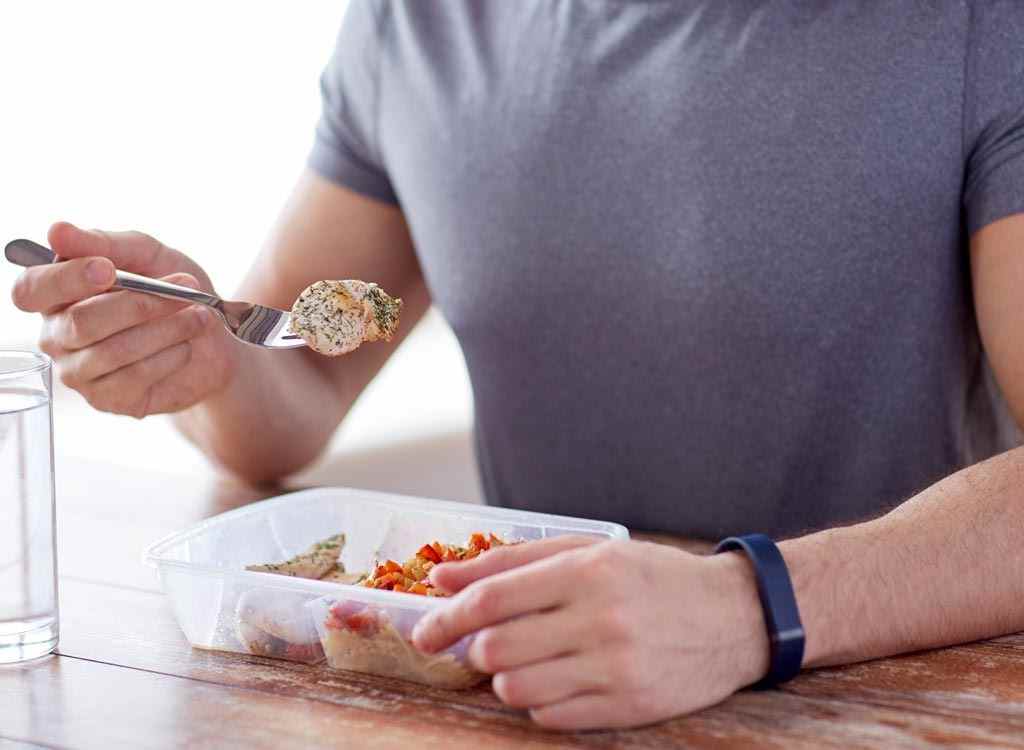
Your 40s can be a hectic time, thanks to career moves and family. The reality is that the chaos likely isn’t going away anytime soon. “I think it’s important to really realize that things are not going to get better, so prevention is your best key,” says Crandall. “Start working on yourself today versus 10 years from now. We know that, on average, people are gaining 1 to 2 pounds per year, so if you’re working toward it now and your metabolism is still functioning well, I think it’s really helpful in the long term.”
RELATED: Stressed Out? A New Study Says to Do This Exercise for 20 Minutes
Buy New Plates
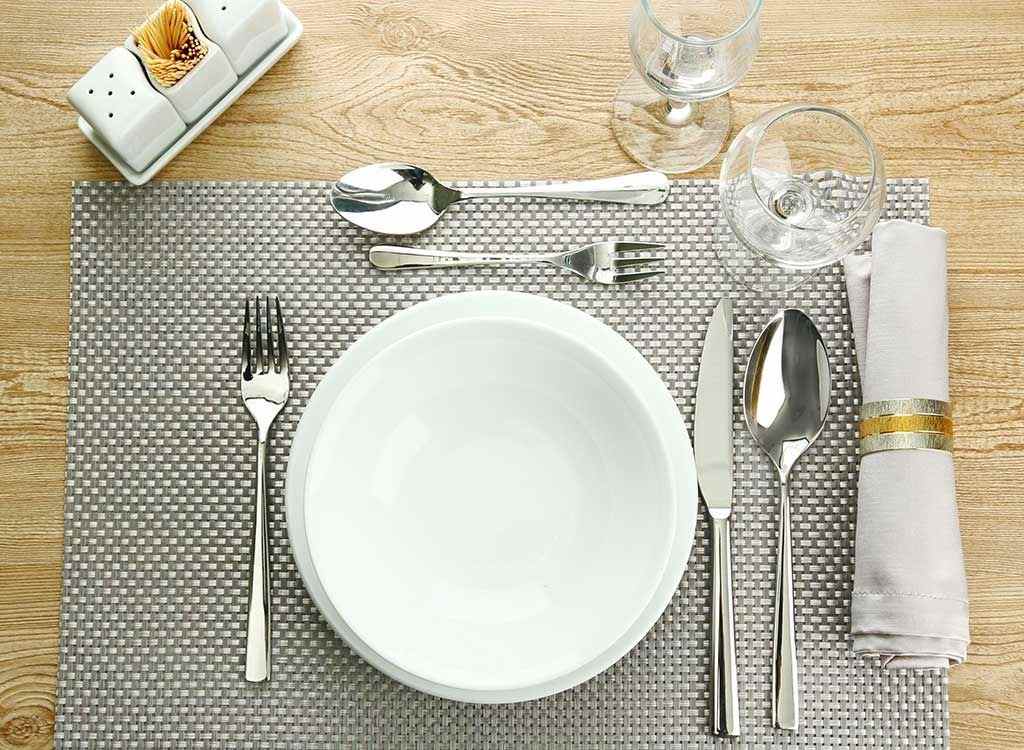
Sometimes cleaning up your diet is as simple as buying new dishware. “Using smaller plates to cut back on your portion sizes can be helpful,” says Crandall. Ditch the 12-inchers and start using the 9-inch ones. A swap like this can add up to major calorie cutbacks.
Make It a Group Effort

You may feel like you’re juggling everyone else’s priorities but your own, but it’s important to realize you don’t have to go about your own goals solo. “Our 30s and 40s can be a pretty busy time for work, family and friends, and so planning in advance can be really helpful,” says Crandall. “Even if you’re meal prepping with friends, meet up on a Sunday to do a healthy meal swap for the week. With something like that, at least you’re eating at home versus going out to eat.” Plan a menu full of these 26 foods to keep you looking and feeling young!
Advocate For Yourself

Just because you put everyone else’s needs first doesn’t mean you have to throw your own needs out the window. More than ever, it’s important to make room for yourself. “I think that between work, social life, and family, it doesn’t necessarily get easier, so you have to advocate for yourself,” says Crandall. “Make sure you’re getting good sleep, that you’re being active and that you’re incorporating those key pieces in a healthy lifestyle. It’s also important to make time to do the things you enjoy doing, rather than beating yourself up at the gym when you have a free moment.”
RELATED: 24 Ways You Make Yourself Sick Without Realizing It, Say Doctors
Phone a Friend

If you find yourself cutting your runs or walks short due to boredom, recruiting a friend can help you get to the finish line. “Enlisting your friends to go on a walk can make it more entertaining for you, which can actually end up making the activity or walk last longer,” says Crandall. If plans don’t match up, try calling a friend on your daily walk to help make the activity more enjoyable so you’ll stay engaged and follow through.
RELATED: Secret Tricks for a Happier Life After 60, Say Experts
Toss Complicated Recipe Books
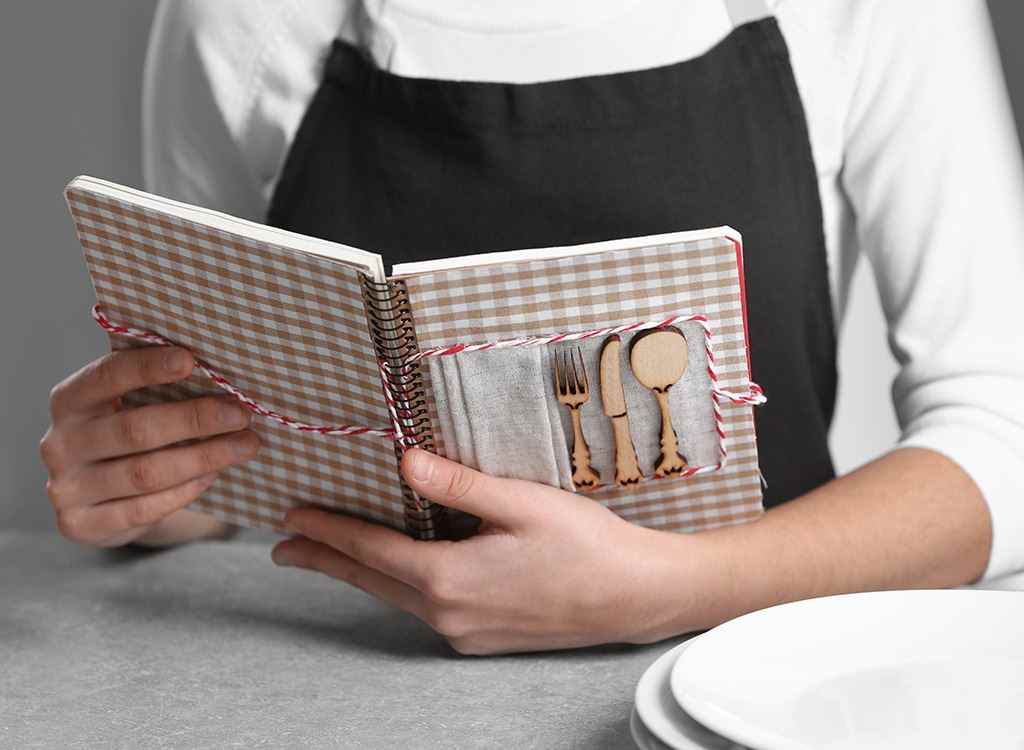
It’s hard enough gathering the whole family for a meal and finding the time to make it in the first place, so don’t beat yourself up if you skipped that fancy lasagna recipe tonight. “Try to find the most bang for your buck foodwise,” says Crandall. “Look for things that are convenient to make versus a two-page recipe. Most of the time, that isn’t really feasible anyway.” Cutting back on the prep will make achieving your health goals that much easier.
RELATED: 11 Easy Recipes You Need in Your Meal Prep Routine Right Now
Test Out a Meal Delivery Service
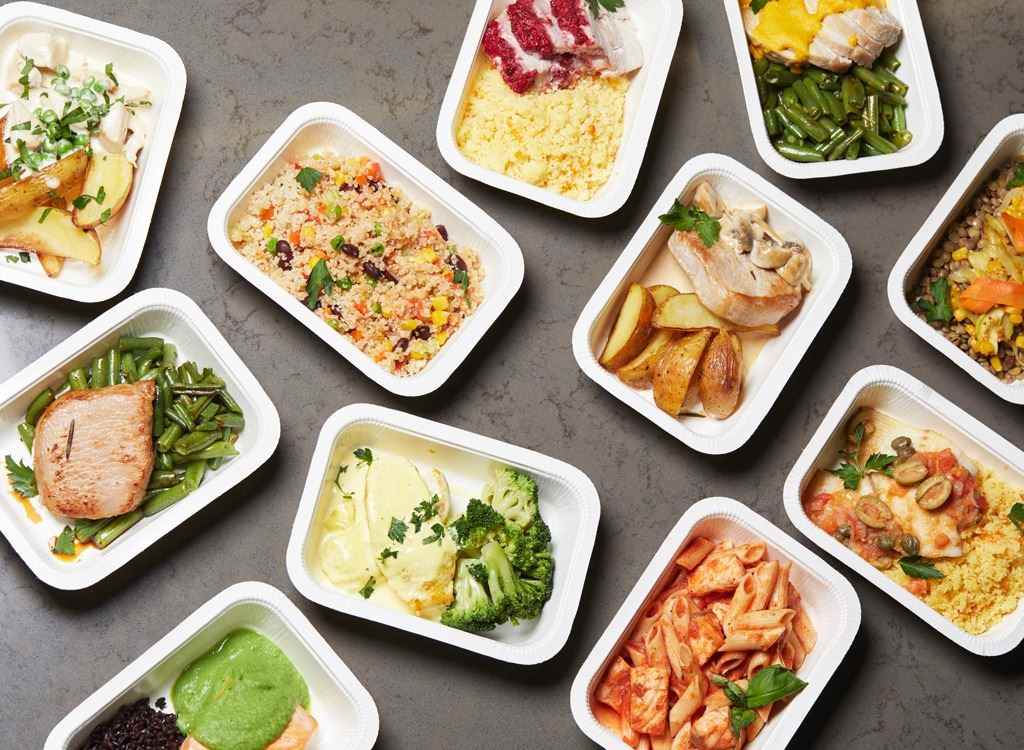
What better way to reduce time spent making healthy meals than by delegating the responsibility? “There’s a shift toward pre-made foods or meal-delivery services,” says Crandall. “For families who eat at home, this could be helpful, as long as they’re catering to their nutrition needs.” Need some help selecting one? See the Top Meal Delivery Service for Every Eating Plan.
Talk to a Dietitian

What may have worked for you 20 years ago, may not cut it anymore. It’s vital to consult an expert when it comes to nutrition to ensure that you’re meeting the needs of your changing body. “Meeting with a Registered Dietitian can help you navigate the food base that’s out there, whether it’s food you make at home or if you’re eating out. They can give some good advice for getting healthy food on the go and point out healthy food choices overall,” says Crandall.
Keep Moving No Matter What

Whether you’re able to run, walk, swim or ride a bike—whatever you do, don’t stop moving. “Once we reach age 30, our bodies start losing muscle mass — about half a pound of muscle a year,” says Zuckerbrot. “This results in a slower metabolism. Inactive people can lose up to 3-5% of muscle mass per year. Staying active can help reduce this.” Try these seven ways to make your workout 500% more effective!
Make a True Effort to Switch Up Your Diet
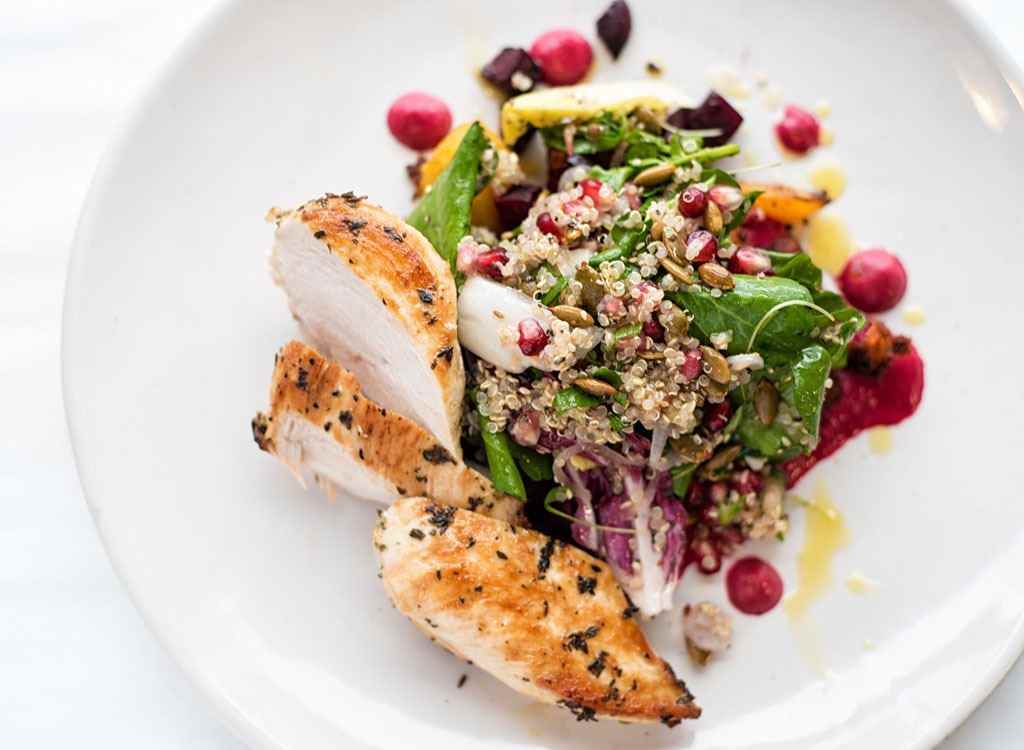
If you haven’t realized yet, hitting the gym extra-hard won’t undo the damage of that burger and fries the same way it did 20 years ago. “If a person eats the same exact thing they ate in their 40s and 50s as they did in their 20s, they’ll experience weight gain because their metabolism is slower and because they have naturally less lean muscle mass,” says Zuckerbrot. Get serious and start being more mindful and choosy with your food options. Fine-tuning your eating habits now will allow your body to function better long term.
Scale Back the High-Intensity Workouts

You may have felt unstoppable in your prime, going for five-mile runs and lifting heavy weights. But as we age, our bodies aren’t able to tolerate the same level of intensity. “As we get older, we might have different body aches and things might feel different. When you’re young you can get away with doing more high-intensity workouts and I think people really rely on that to stay fit and thin. However, while movement is super important, we need to do what is good for our bodies as we get older,” says Smith.
RELATED: The #1 Best Exercise for Slimming Down After 50, Says Science
Don’t Try to Out-Exercise Your Diet
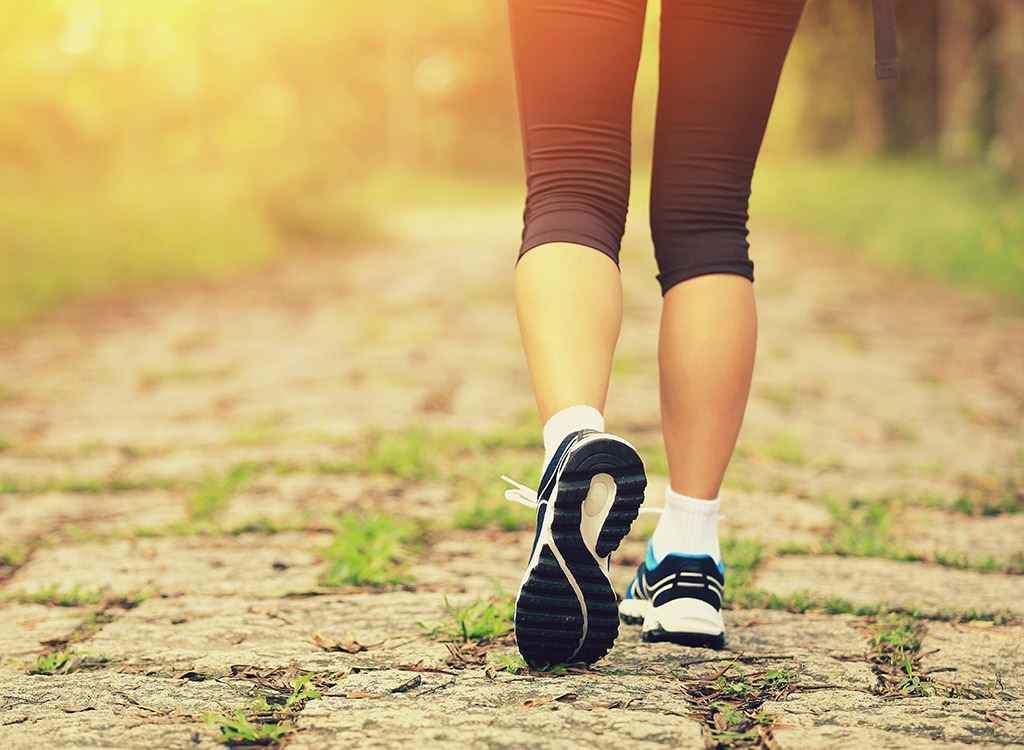
If you’ve been one to hit the gym extra hard after a weekend binge, you’re not alone. Often we turn to exercise to correct diet mistakes, but that solution doesn’t last forever. “I’ll see a lot of chronic exercisers that will use exercise as a form of getting rid of calories,” says Smith. “Our ability to do that as we get older changes — our bodies change, and our metabolism changes.”
The Rx: It’s important to separate food versus exercise and focus on eating well. Make exercise something that’s not going to beat your body up.”
Strength Train
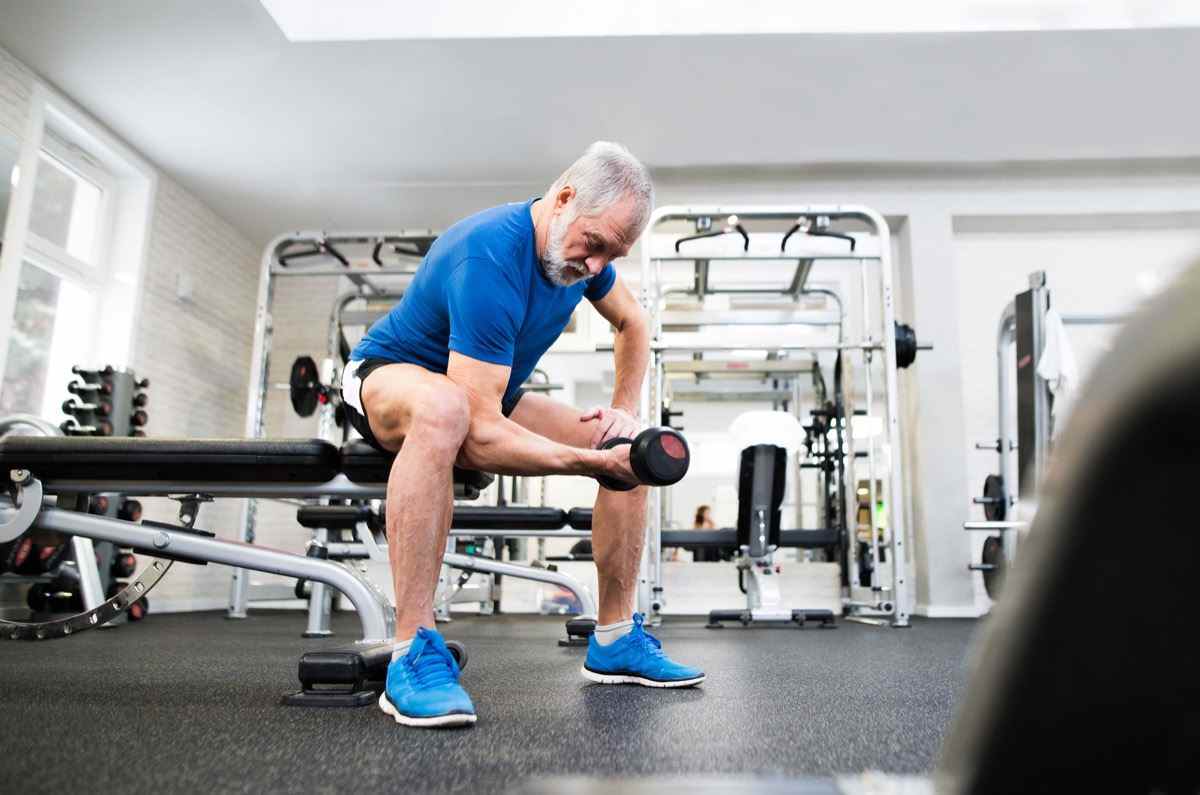
We experience a big change in the ratio of body fat to muscle as we age because it becomes more difficult to build and maintain muscle mass. “After the age of 40, people should try to maintain, if not increase, their muscle stores and lean body mass,” says Zuckerbrot. “More lean muscle will lower body-fat percentage and keep your metabolism from slowing down. Strength or resistance training is more effective than cardiovascular activity in the preservation of precious muscle mass. A study done by the Journal of Applied Physiology showed that resistance training significantly increased lean body mass in participants, while cardiovascular exercise significantly decreased it.”
RELATED: The Worst Foods for Your Metabolism
Be Wary of Cardio
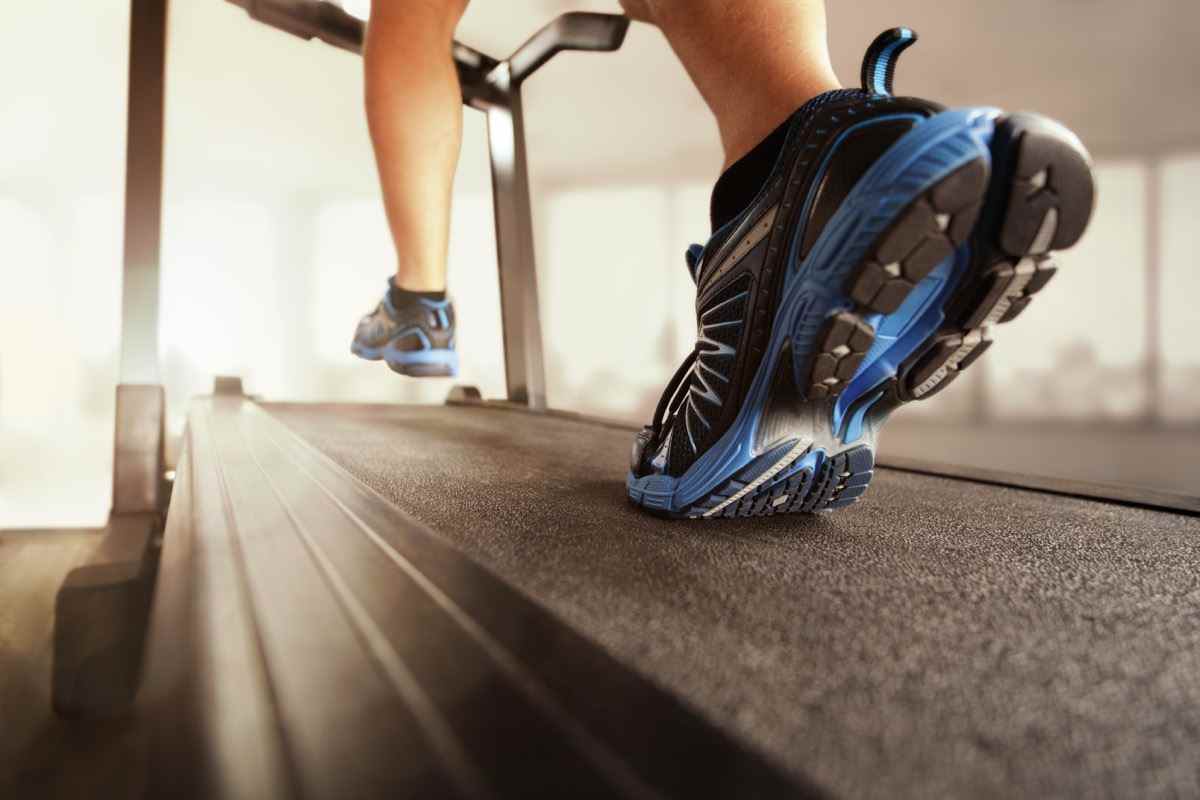
Any kind of movement is beneficial to your overall health but beware of the appetite-boosting effect of a heavy cardio workout if you’re trying to maintain or lose weight. “Cardio stimulates appetite and people end up eating more sometimes than if they hadn’t worked out,” says Zuckerbrot. “People often feel entitled to eat more post-activity, overestimate calories burned in the gym, and underestimate caloric intake.”
RELATED: Sneaky Ways to Trick Yourself into Enjoying Exercise, Say Experts
Start a Food Journal

If you’ve never logged what you eat, doing so might increase your weight loss or fitness results tenfold. Food journaling is a good way to stay accountable to what you eat and how often you work out. By writing down your progress and reviewing it regularly, you can better assess your starting point and pick out any areas that may be holding you back.
Read more: The Expert Guide to Keeping a Food Journal for Effective Weight Loss
Meditate

Going to the gym will strengthen your body, and meditating will work out your mind. Research published in JAMA Internal Medicine suggests that taking time to meditate daily can help reduce stress, anxiety, depression, and even pain. If you’ve never tried meditating, yoga can also be a good practice to start with to help ease you into that type of mindful state.
Stop Avoiding the Doctor

It can be incredibly beneficial to consult a trainer on matters of fitness and to reach out to a dietitian to help put together a healthy eating plan, but when it comes to basic health practices you should be seeing a doctor annually as a method of prevention. “It’s important to regularly check in with your health-care team as we get older. Everyone should have a primary care doctor or internist who knows their medical history, as well as specialists, as need be. It’s important also to listen to our bodies. If something hurts, don’t ignore it—It hurts for a reason, get it checked out!” says Zuckerbrot.
Fill Up On Fiber
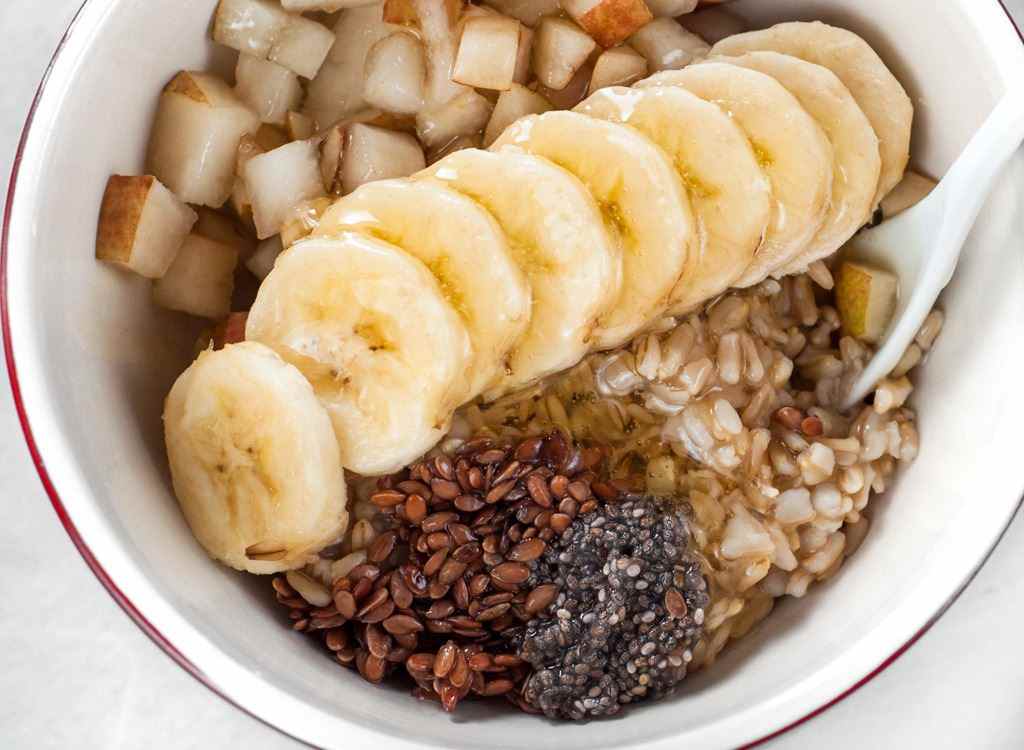
Fiber was important two decades ago, and it’s still important now. “Fiber helps keep bowel function regular, helps lower risk for colon cancer, and is good for overall heart health,” says Zuckerbrot. Aim for over 30 grams of fiber per day.
The Rx: Fiber is found in fruits like raspberries, vegetables like artichokes, whole grains like farro and quinoa, and beans, peas, and legumes.
Read more: 20 Easy Ways to Add Fiber to Your Diet
Increase Potassium Intake
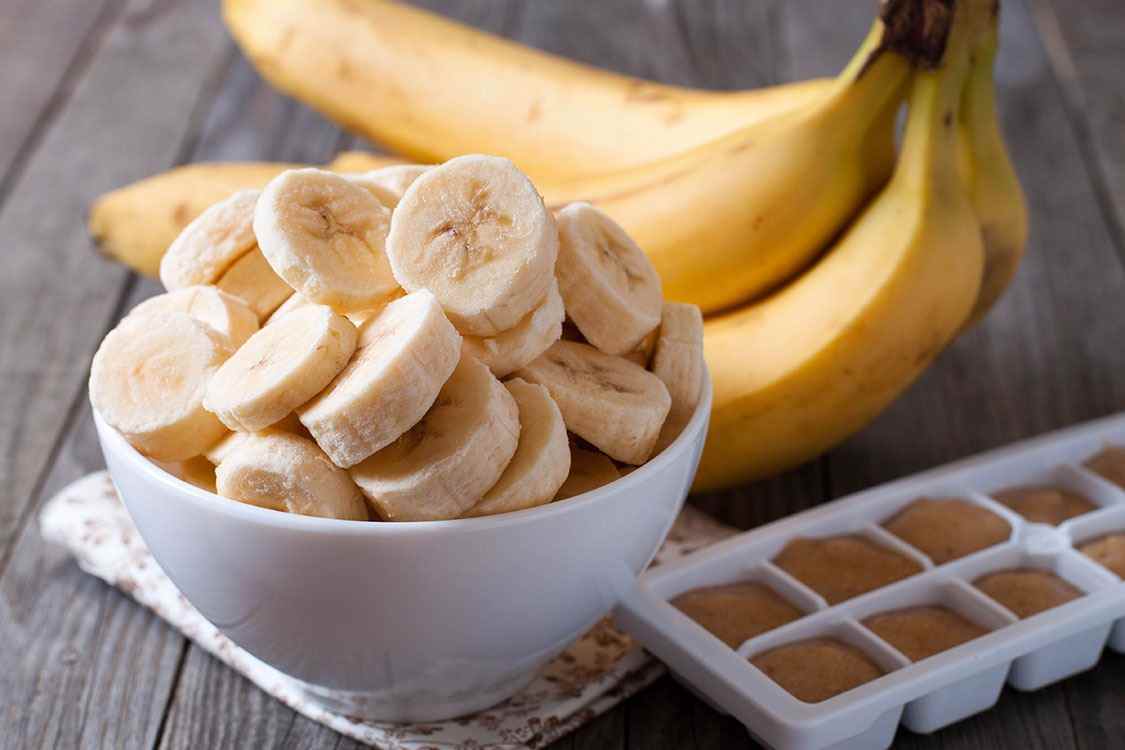
Although we’re not saying you should need to double your banana consumption, it is important that you increase your potassium intake. “Increasing potassium intake and lowering sodium or salt intake can help lower risk for high blood pressure,” says Zuckerbrot. Good sources of potassium include most fruits and vegetables like bananas, potatoes, avocados, and spinach.
Minimize Your Micro-Stresses

A bad commute, a sniping co-worker, a long line at the Whole Foods—these little micro-stresses, which we tolerate every day as a part of life, can lead to a macro problem. Stress, as we’ve learned, taxes your heart.
The Rx: Meditating for 10 minutes every morning can help you better face whatever comes your way.
You’re Not Foam Rolling
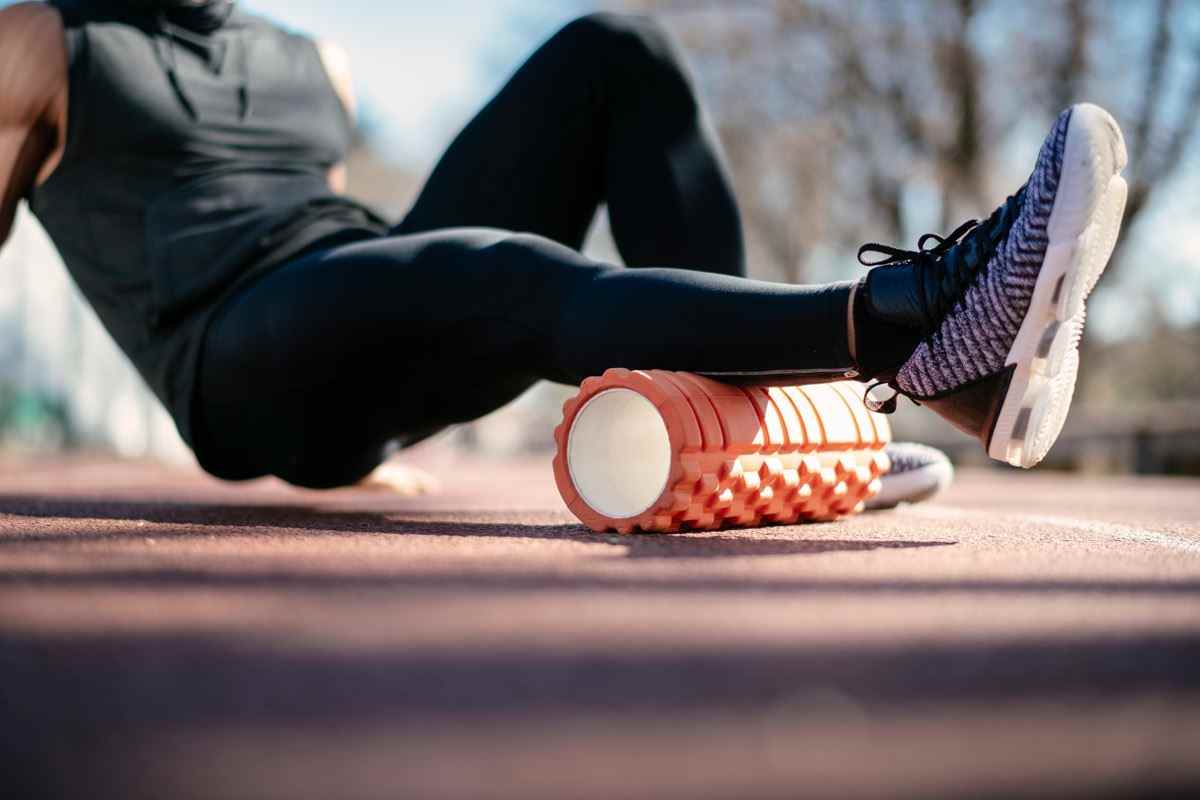
Foam rollers—you know, those hardened tubes made from, yes, foam, at the gym—work wonders on sore joints, bad backs, and tired muscles. (They also help stimulate the lymphatic system, which can make you feel more relaxed.)
The Rx: Add five minutes of foam rolling before every workout, or when you’re relaxing in front of the TV, and see what we mean.
You Think the Grass is Greener

Most of us spend decades working hard enough to own a proverbial house with a lawn—only to look at our neighbor’s and think, “I want his.”
The Rx: At your age, it’s entirely appropriate to be ambitious. Just don’t confuse ambition (i.e. working to get what you want) with envy (i.e. not being happy with the amazing things you have).
You’re Compromising

You can enjoy your midlife without the crisis. One way is to eliminate regrets smartly and systematically, instead of letting them pile up.
The Rx: Make a list of the ways you’ve made compromises in your life—we mean the compromises that make you feel less like you. Then examine and unpack each, and write down how you’d like things to be better six months from now. Then work with a professional—career counselor, therapist, life coach—to achieve what you want, without blowing up your life.
You Think You Can Do What You Did

After 40, don’t stop living—just live differently. If you stayed out until 4 am every Thursday, Friday, and Saturday night back in your 30s, consider going out to the club just one night a week these days, or leave a few hours earlier (particularly if you have children who wake you early).
The Rx: It’s important to realize that this isn’t scaling back. It’s you evolving into a newer, healthier you—one who needs seven to nine hours of sleep consistently. Make sure you see the 15 Ways You’re Sleeping Wrong After 40 so you can get a better sleep schedule.
For more tips on living longer delivered to your inbox, sign up for our daily newsletter!
Read this next:
The Best Foods That Boost Your Memory After 40
Secret Exercise Tricks for a Better Body After 40, Say Experts
40 Drinks You Should Never Drink After 40
The post You Need to Stop Making These 40 Health Mistakes After 40 appeared first on Eat This Not That.
